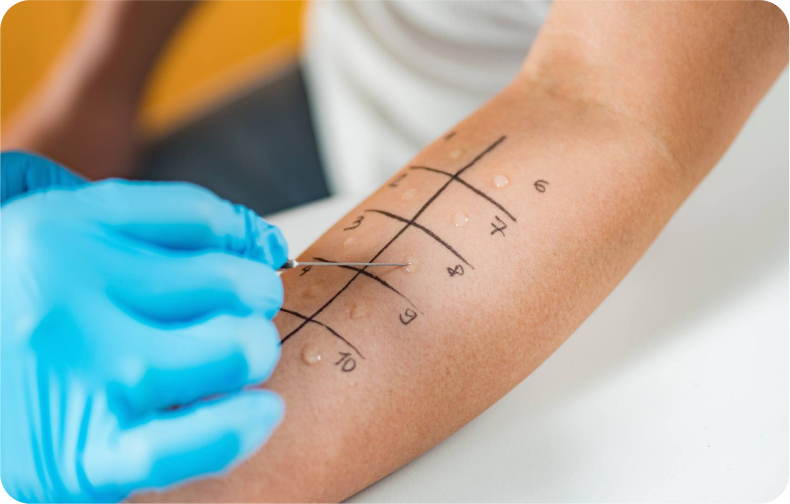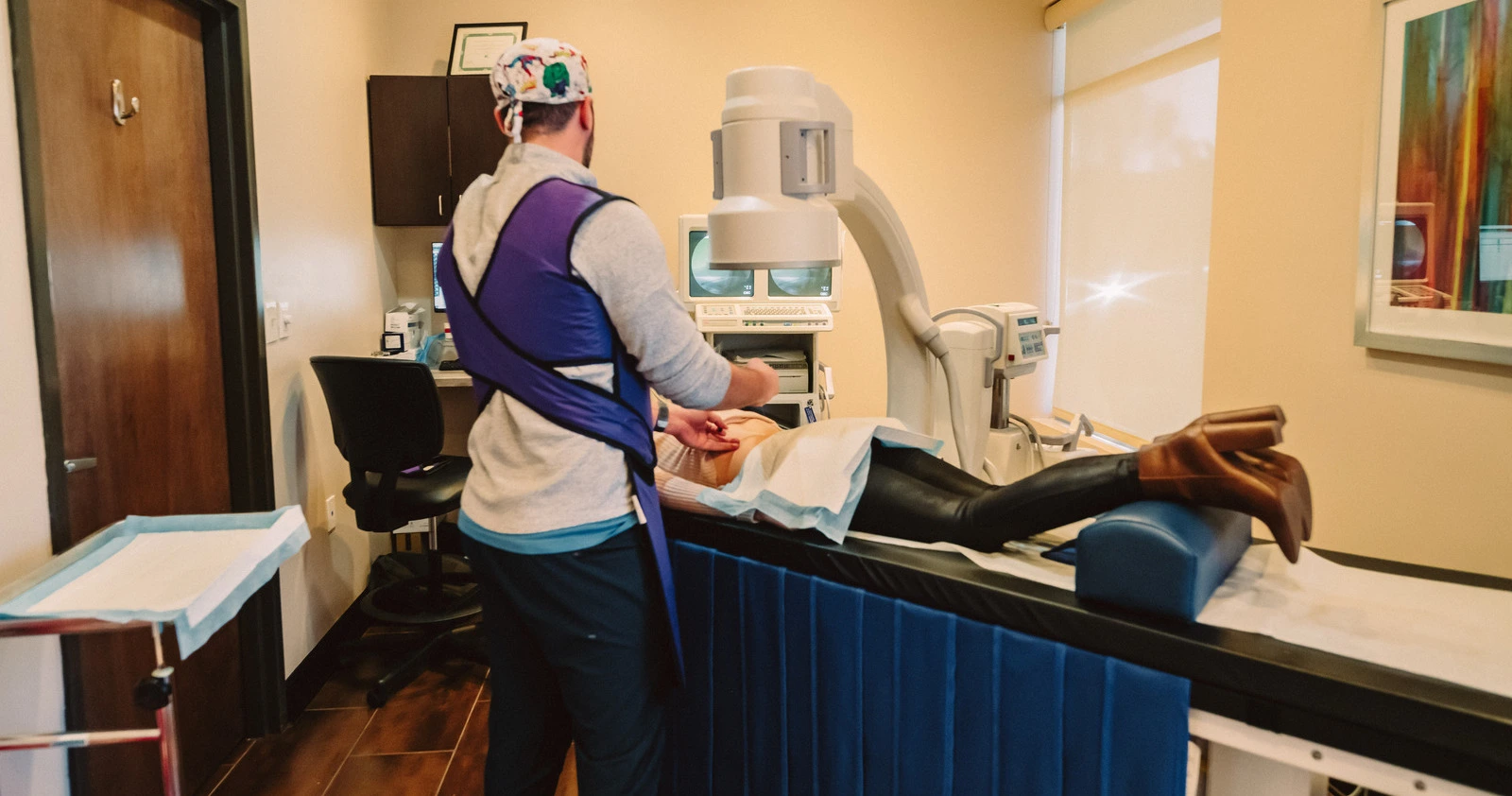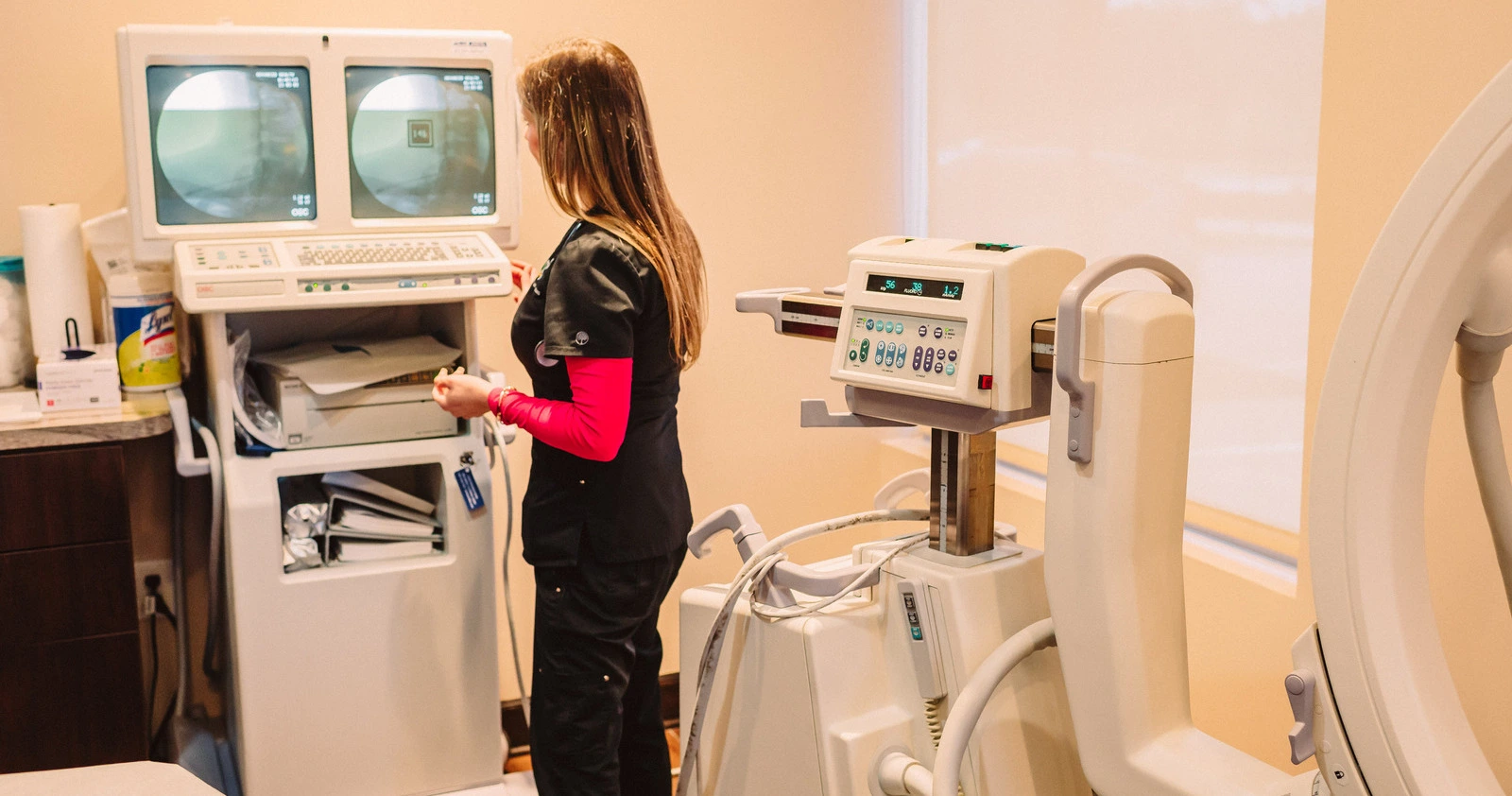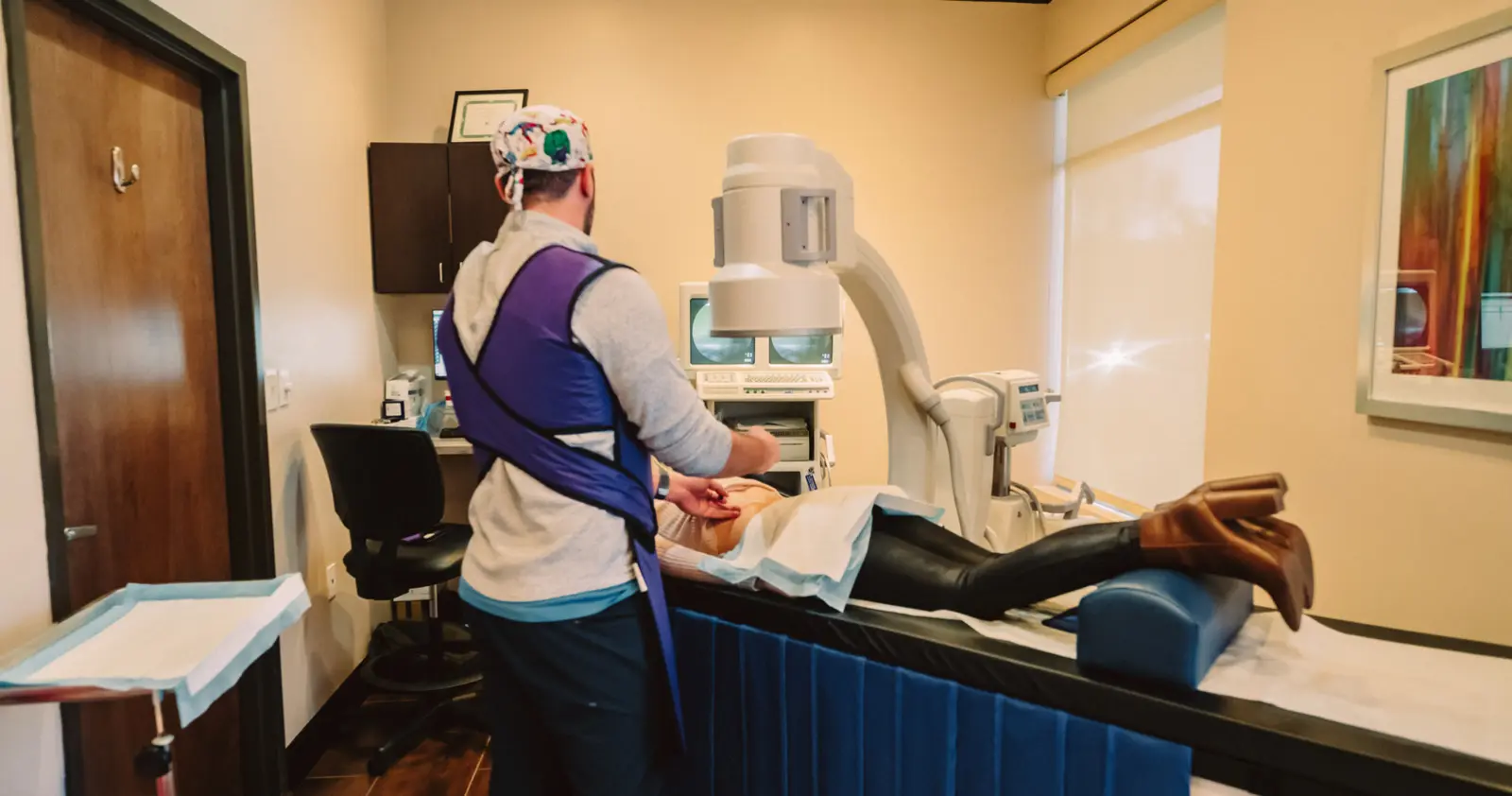Allergy Tests: Find Out What’s Causing Your Allergies

If you are constantly walking around worrying about what is causing your allergic reactions and how to avoid them, maybe it is time to find out the root cause of your allergies. There is no need to risk your long-term health any longer. It is essential to go for an allergy test to determine what causes your allergic reactions.
You suspect you have allergies. You experience a variety of unexplained symptoms that are unpredictable. There are times when you wheeze or sneeze. There are other times when your eyes water and you feel like you have a cold, but no cold medicine will touch your symptoms. You may have had a rash or hives.
If you have a severe reaction with swelling or difficulty bleeding, you know that you’re having some type of allergy. You need to find answers. Allergy testing can help confirm or rule out allergies and consequently reduce adverse reactions and limit unnecessary avoidance and medications.
How Does It Work?
Correct allergy diagnosis, counseling, and avoidance advice based on valid allergy test results are of utmost importance and can help reduce the incidence of symptoms, the need for medications, and improve quality of life.
If you have an allergy, your immune system overreacts to a substance you inhaled, touched, or ate. Your immune system controls how your body defends itself. For instance, if you have an allergy to pollen, your immune system identifies pollen as an invader or allergen.
Therefore, your immune system overreacts by producing antibodies called Immunoglobulin E (IgE). These antibodies travel to cells that release chemicals, causing an allergic reaction. These reactions can range from annoying sneezing and sniffling to a life-threatening response called anaphylaxis.
Types of Allergens
Allergens are substances that can cause an allergic reaction. There are three primary types of allergens:
- Inhaled allergens affect the body when they come in contact with the lungs or membranes of the nostrils or throat. Pollen is the most common inhaled allergen.
- Ingested allergens are present in certain foods, such as peanuts, soy, and seafood.
- Contact allergens must come in contact with the skin to produce a reaction. An example of a reaction from a contact allergen is the rash and itching caused by poison ivy.
Allergy tests involve exposing you to a very small amount of a particular allergen and recording the reaction.
So how can you be sure which allergens are responsible for your symptoms? Allergy tests, combined with a physical examination and medical history, can give precise information about what you are, as well as what you are not, allergic to.
For instance, perhaps you or a family member has allergy symptoms and your household includes a pet. You don’t have to avoid contact with the pet if allergy testing shows an allergy to dust mites but not to pet dander.
Many people with untreated allergy symptoms aren’t aware of how much better they will feel once their symptoms are properly diagnosed and managed by an allergist.
What Is an Allergy Testing?
An allergy test is a diagnostic test that healthcare professionals use to identify allergies. It helps determine the specific allergens or substances that cause an allergic reaction in your body. Generally, your allergist will introduce these substances in controlled amounts and monitor you for effects. The following are a few examples of allergy tests:
- Intradermal or skin injection test
- Skin prick or scratch test
- Patch test
- Blood or IgE antibodies test
- Challenge tests
These allergy tests can help doctors diagnose different forms of allergies. Some common allergy conditions are:
- Allergic asthma
- Allergic rhinitis or hay fever
- Food allergies
- Dermatitis or eczema
- Penicillin allergy
- Bee venom allergy
An allergy test is an exam performed by an allergist to determine whether your body has an allergic reaction to a known substance. The exam can be in the form of a blood or skin test (prick/patch).
Your immune system is your body’s natural defense. Allergies occur when your immune system overreacts to something in your environment. For example, pollen, which is normally harmless, can cause the immune system to overreact. This overreaction can lead to:
- sneezing
- coughing or wheezing
- a runny nose
- itchy, watery eyes
- blocked sinuses
Reasons to Go for An Allergy Testing
Allergies are the 6th leading cause of chronic illness, and more than 50 million Americans suffer from different types of allergies each year. You may be one of them, and the only way to know for sure is to take an allergy test. Here are some of the reasons why you should go for an allergy test:
- You Are Allergic to Allergens Found in The Air
Allergens in the air are barely visible to the naked eye. Dust, pollen, and pet dander are some air allergens that cause allergic rhinitis or hay fever. This type of allergy may have symptoms similar to a cold.
You may experience headaches, nasal congestion, itchy or watery eyes, or a runny nose. Wheezing or shortness of breath, cough, and sore throat are also among its symptoms.
- You Have Food Allergies
There are several allergy tests to help determine which foods cause allergic reactions in you. The effects of a food allergy may range from minor itching and redness to life-threatening anaphylactic shock.
Some people with food allergies experience skin symptoms such as hives or rash, itching, or swelling in the face. Respiratory symptoms include wheezing, tightening of the airway, coughing, or shortness of breath.
Your digestive system may also be affected, resulting in nausea or vomiting, abdominal pain or cramps, and diarrhea. Cardiovascular symptoms include weakened pulse, paleness, and dizziness or lightheadedness.
- You Experienced Skin Allergic Reactions
Contact dermatitis is one of the common types of allergies where your skin reacts after contact with a substance. Examples of skin allergens are latex, fragrances, poison ivy, or metals such as nickel.
You may experience skin itching and rash, which may become swollen and form hives. It may also lead to blisters with a burning sensation.
When is Allergy Testing Appropriate?
Testing done by an allergist is generally safe and effective for adults and children of all ages. The allergen extracts or vaccines used in allergy tests performed by allergists meet U.S. Food and Drug Administration (FDA) requirements.
Symptoms that usually prompt an allergist to perform testing include:
- Respiratory: itchy eyes, nose, or throat; runny nose, nasal congestion, chest congestion, watery eyes, cough, or wheezing.
- Skin: itchiness or eczema.
- Abdominal: vomiting or cramping and diarrhea consistently after eating certain foods.
- Severe reactions to stinging insect stings (other than swelling at the site of the sting).
- Anaphylaxis (pronounced an-a-fi-LAK-sis): a serious allergic reaction that affects many parts of the body at the same time.
It is important that allergy testing is directed by a healthcare professional with sufficient allergy/immunology training and prompted by your medical history.
Why Allergy Testing Is Performed
Allergies affect more than 50 million people living in the United States, according to the American College of Allergy, Asthma, and Immunology (ACAAI). Inhaled allergens are by far the most common type.
The World Allergy Organization estimates that asthma is responsible for 250,000 deaths annually. These deaths can be avoided with proper allergy care, as asthma is considered an allergic disease process.
Allergy testing can determine which particular pollens, molds, or other substances you’re allergic to. You may need medication to treat your allergies. Alternatively, you can try to avoid your allergy triggers.
How to Prepare for Allergy Testing
Before your allergy test, your doctor will ask you about your lifestyle, family history, and more.
Your physician will most likely tell you to stop taking the following medications before your allergy test because they can affect the test results:
- certain heartburn treatment medications, such as famotidine (Pepcid)
- prescription and over-the-counter antihistamines
- tricyclic antidepressants, such as amitriptyline (Elavil)
- benzodiazepines, such as diazepam (Valium) or lorazepam (Ativan)
- systemic corticosteroids (if you are undergoing patch testing)
Types of Allergy Tests
Different allergens bother different people, so your doctor will determine which test is the best for you. Regardless of the type of test, a doctor will first perform a physical examination and ask questions about your symptoms to determine if allergy testing is warranted.
- IgE Skin Tests
This type of testing is the most common and is relatively painless. Your doctor will typically try a scratch test first. A very small amount of certain allergens is put into your skin by making a small indentation or “prick” on the surface of your skin.
You’ll be closely monitored to see how your skin reacts to the foreign substance. If there’s localized redness, swelling, elevation, or itchiness of the skin over the test site, you’re allergic to that specific allergen.
If you have allergies, just a little swelling that looks and feels like a mosquito bite will occur where the allergen(s) to which you are allergic was introduced. If you are allergic to ragweed pollen but not to cats, only the ragweed allergen will cause a little swelling or itching. The spot where the cat allergen was applied will remain normal.
You don’t have to wait long to find out what is triggering your allergies. Reactions occur within about 20 minutes. And you generally won’t have any other symptoms besides the small hives where the tests were done, which go away within 30 minutes. If your prick skin tests are negative but your physician still suspects you might have allergies, more sensitive “intradermal” tests may be used in which a small amount of allergen is injected within the skin.
Skin tests are used to identify numerous potential allergens. This includes airborne, food-related, and contact allergens. The three types of skin tests are scratch, intradermal, and patch tests. They are best performed in an allergist’s office to assure the test results are read properly and to minimize the risk of rare side effects.
If the scratch test is inconclusive, your doctor may order an intradermal skin test. This test requires injecting a tiny amount of allergen into the dermis layer of your skin. Again, your doctor will monitor your reaction.
Another form of skin test is the patch test (T.R.U.E. TEST). This involves using adhesive patches loaded with suspected allergens and placing these patches on your skin. Patch testing is performed to evaluate for causes of allergic contact dermatitis.
The patches will remain on your body after you leave your doctor’s office. The patches are then reviewed 48 hours after application and again at 72 to 96 hours after application.
- Blood Tests
This type of allergy test involves drawing blood, so results are not available as rapidly as with skin tests. IgE blood tests are generally used when skin tests might be unsafe or won’t work, such as if you are taking certain medications, or have a skin condition that may interfere with skin testing.
If there is a chance you will have a severe allergic reaction to a skin test or cannot perform a skin test, your doctor may order a blood test.
For this test, a blood sample is tested in a laboratory for the presence of antibodies that fight specific allergens. Called ImmunoCAP, this test is very successful in detecting IgE antibodies to major allergens.
- Challenge Tests
A very small amount of an allergen is inhaled or taken by mouth. Challenges are done mostly with potential food or medication allergies. It is very important that the allergy testing be supervised by a physician with specialized training and experience, such as an allergist.
What Happens If I Have an Allergy?
If you find out that you have an allergy, there are several ways to proceed. If it is an allergy to a food, it may be as simple as removing that food from your diet.
Other allergies may require treatment. In some cases, your doctor may prescribe medications like antihistamines or corticosteroids.
Another treatment option is immunotherapy, also known as allergy shots. During immunotherapy, you will be given shots containing small amounts of the allergen so your body can slowly build up immunity. For people with life-threatening allergies, your doctor may prescribe emergency epinephrine.
Several home remedies may help prevent or reduce symptoms of allergies. These include air filters and saline nasal or sinus rinses.
Bottom Line
As always, prevention is better than cure! You need to know what your allergies are to prevent them — so take an allergy test today. Determining the cause behind your allergic reactions now can help stave off uncomfortable symptoms and potentially life-threatening symptoms later.
You can expect our team of highly experienced doctors and allergists at Advanced Health Solutions – GA Spine & Disc to provide you with the highest quality service with a kind, caring attitude. Whether you have a severe allergy or a minor one, we will treat you with the attention and care you deserve.
Start your journey towards an allergy- and discomfort-free life. Contact our friendly staff at (770) 212-3991 if you have any questions. They will be more than happy to answer them. You can also schedule an appointment by calling us or online.



























